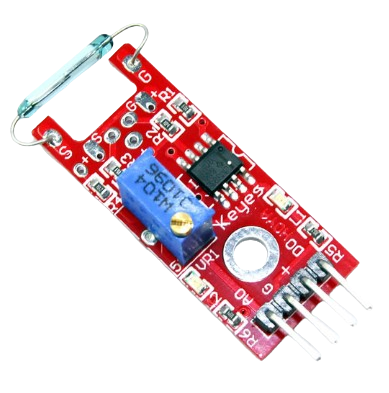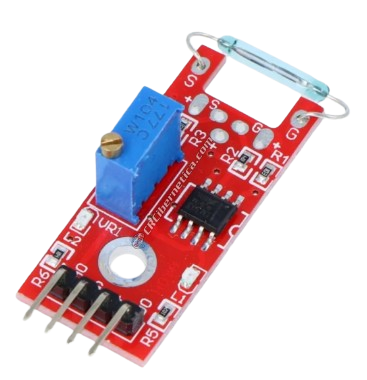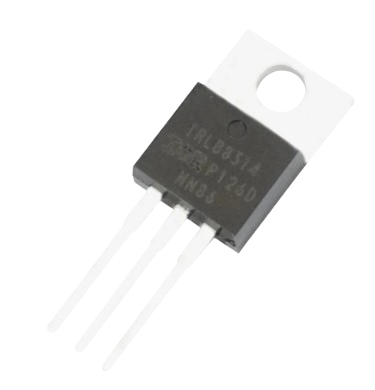🚀 New! Smart IoT Devices + Free Dashboard Access - Control Your Devices Online -
Access the RobuKits IoT Dashboard
*Product images are for illustrative purposes only. Actual product may differ from images. Please refer to the product description and specifications for details.
Reed Switch Module
₹50.0
Prices include applicable taxes.
0 sold
Only 50 left!
Check Delivery Availability
The Reed Switch Module is a magnetic field detection sensor widely used in automation and security projects. It operates by opening or closing its contacts in the presence of a magnetic field. Compact and easy to interface with microcontrollers like Arduino, Raspberry Pi, and ESP boards, this module is highly reliable for detecting proximity, door/window opening, or other magnetic-based switching applications.
No reviews yet. Be the first to review!
Product Specifications
| Specification | Details |
|---|---|
| Operating Voltage | 3.3V – 5V |
| Output Type | Digital (ON/OFF) |
| Sensing Element | Magnetic reed switch |
| Module Size | Compact PCB with mounting holes |
| Interface | 3-pin (VCC, GND, Signal) |
| Response Tim | Fast switching speed |
| Operating Temperature | -40°C to +85°C |
| Lifespan | 100,000 switching cycles |
Key Features
- Simple and reliable magnetic switch mechanism
- Compatible with Arduino, ESP32, Raspberry Pi, and other microcontrollers
- Low power consumption for battery-operated projects
- Provides digital ON/OFF signal output
- Small size with mounting holes for easy installation
- High durability with long switching life
Applications
- Door and window security alarm systems
- Position and proximity sensing
- Robotics and automation projects
- Magnetic field detection
- Smart home systems (intrusion detection)
- Industrial control systems
Frequently Asked Questions
It is used to detect magnetic fields and acts as a switch when exposed to a magnet, making it ideal for proximity detection and security systems.
The module provides a digital ON/OFF signal depending on the presence or absence of a magnetic field.
Yes, it works perfectly with Arduino, ESP, Raspberry Pi, and other microcontrollers.
No, it can be directly interfaced with your microcontroller using the signal pin.



